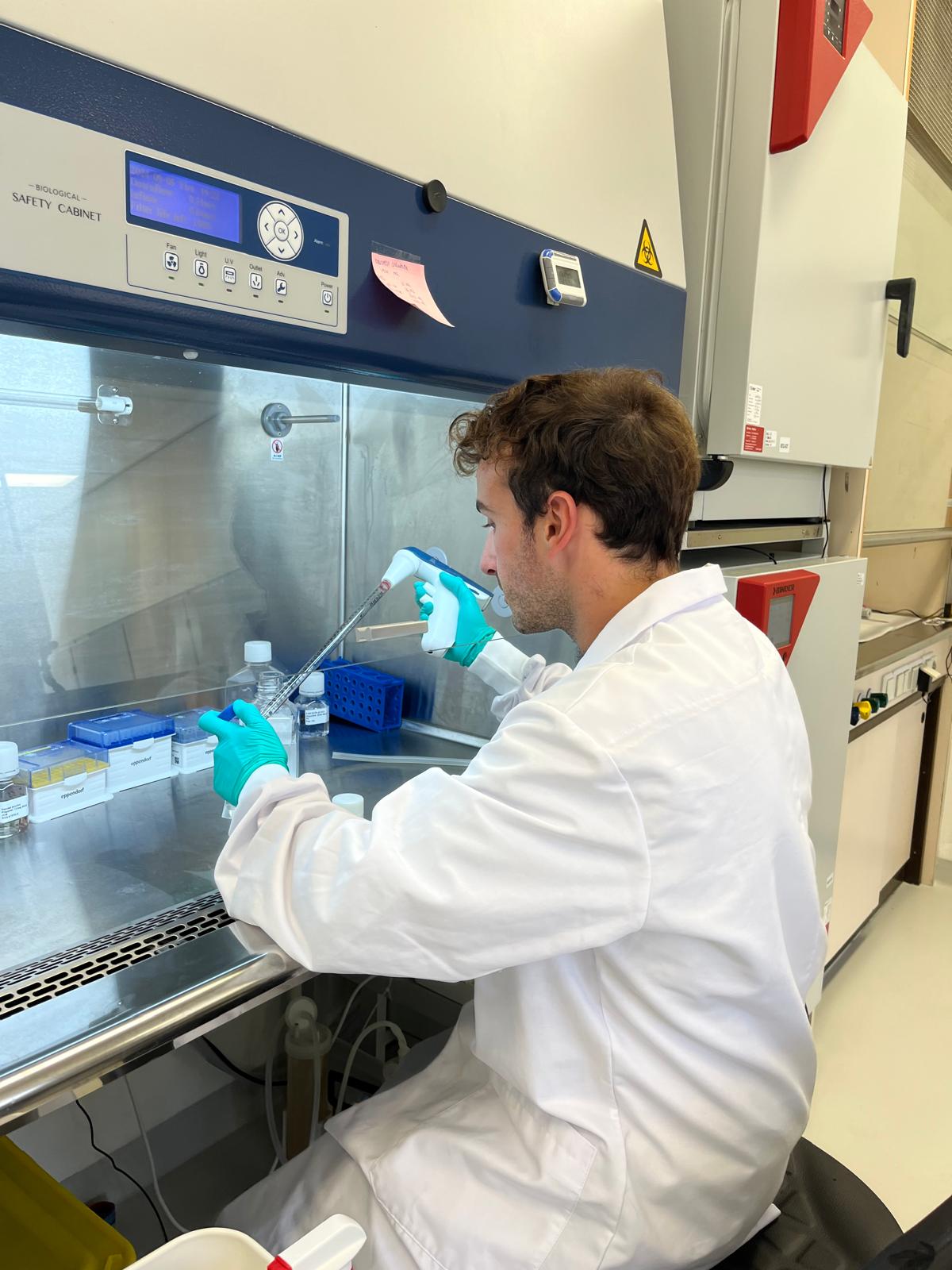Can you tell a bit more on the progress of your research? What is the eventual goal?
“My research focuses on developing a protocol for point-of-care manufacturing of lentiviral vectors using Osilaris. Over the past year, I have been working on creating a GMP-compliant process for proliferating HEK cells on microcarriers within the Osilaris system, which is crucial for efficient cell growth and scalability. Having optimized this aspect, my current focus is on producing high-quality lentiviral vectors within the same bioreactor, ensuring the system can support both cell proliferation and virus production.
The ultimate goal is to establish a robust and scalable protocol for on-site lentiviral vector production, improving the accessibility and efficiency in clinical settings like CAR T therapy.”
What makes HEK293T cells particularly well-suited for producing lentiviral vectors in CAR T therapy?
“HEK293T cells are ideal for producing lentiviral vectors in CAR T therapy due to their high transfection efficiency, enabling large amounts of viral particles. Their expression of the SV40 large T antigen allows for high levels of plasmid replication, which is crucial for generating lentiviruses. Moreover, as human cells, they perform the necessary post-translational modifications for human proteins, ensuring the viral vectors function properly in human T cells. HEK293T cells are also easy to culture, scalable, and consistently produce high viral titers.”
Can you explain how Osilaris™ helps optimize HEK293T cell culture for large-scale production?
“Osilaris optimizes HEK293T cell culture for large-scale production by combining the use of the adherent bag with the microcarriers, increasing the available surface area for high-density cell growth, while maintaining precise control over conditions like temperature, pH, and oxygen. Moreover, Its gentle rocking system reduces shear stress, which is essential in low attachment cells such as HEK293T . Additionally, the bioreactor’s scalability, real-time monitoring, and automation makes it ideal for transitioning from small-scale experiments to large-scale production in a GMP environment .”
What are some of the challenges you’ve faced in scaling up HEK293T cell cultures, and how have you addressed them?
“One of the main challenges in scaling up HEK293T cell cultures has been ensuring proper attachment to the microcarriers and achieving uniform cell distribution across them. To address this, I adopted a process development approach, starting with low-scale cultures in 6 well plates and spinner flasks to test different types of microcarriers. I then evaluated various agitation and feeding regimes to optimize not only cell distribution but also overall yield. By gradually scaling up from these smaller models, I was able to optimize the conditions to support efficient cell growth and scalability using the Osilaris.”
What future developments in HEK293T cell culture and viral vector production do you find most promising?
“One of the most promising future developments in HEK293T cell culture and viral vector production is the generation and optimisation of engineered producer cell lines. These are genetically modified cell lines designed to stably produce viral vectors with high efficiency and consistency. Unlike traditional methods that are based on transient transfection, engineered producer cell lines provide a more reliable and scalable platform by ensuring continuous production of viral vectors without the need for repeated transfections. This improvement can lead to higher yields, reduced production costs, and greater consistency in vector quality, making them highly valuable for large-scale and clinical applications.”
How do you see the role of HEK293T cells evolving in gene therapy and CAR T cell production over the next few years?
“HEK293T cells are likely to play an increasingly central role in gene therapy and CAR T cell production over the next few years. Their versatility and efficiency producing high-titer viral vectors makes them a gold standard for delivering therapeutic genes and CAR constructs. As advancements continue, HEK293T cells will benefit from improvements in engineering and process optimization, such as the development of more robust cell lines and more point-of-care manufacturing technologies to centralize the production of the viral vectors directly at the site of the clinic/hospital.”
